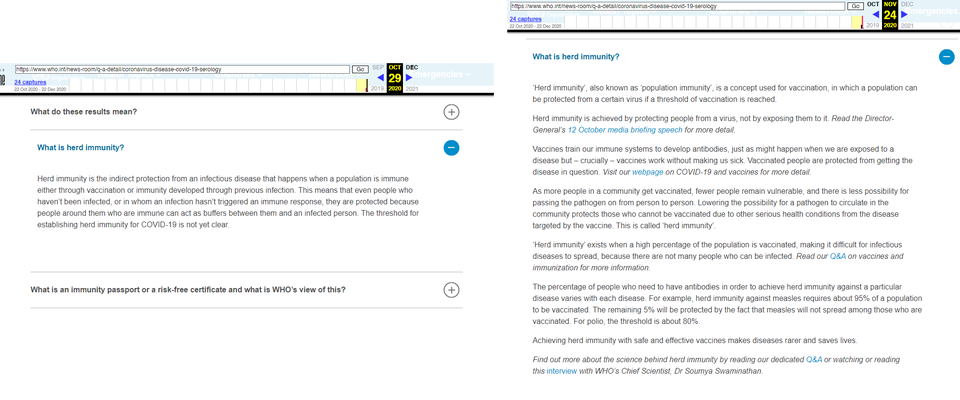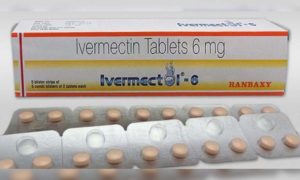The WHO Just Changed Definition of Herd Immunity to Exclude Natural Immunity


The WHO has changed their definition of herd immunity on a Q&A page for COVID-19. In October the response to “What is herd immunity?” was:
Herd immunity is the indirect protection from an infectious disease that happens when a population is immune either through vaccination or immunity developed through previous infection. This means that even people who haven’t been infected, or in whom an infection hasn’t triggered an immune response, they are protected because people around them who are immune can act as buffers between them and an infected person. The threshold for establishing herd immunity for COVID-19 is not yet clear.
By mid-November, the part about immunity through previous infection was removed:
‘Herd immunity’ exists when a high percentage of the population is vaccinated, making it difficult for infectious diseases to spread, because there are not many people who can be infected. Read our Q&A on vaccines and immunization for more information.
The percentage of people who need to have antibodies in order to achieve herd immunity against a particular disease varies with each disease. For example, herd immunity against measles requires about 95% of a population to be vaccinated. The remaining 5% will be protected by the fact that measles will not spread among those who are vaccinated. For polio, the threshold is about 80%.
Achieving herd immunity with safe and effective vaccines makes diseases rarer and saves lives.
Not coincidentally, this aligns with the roll out of the COVID vaccine.



